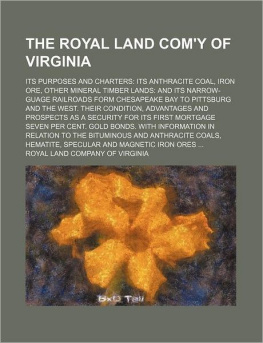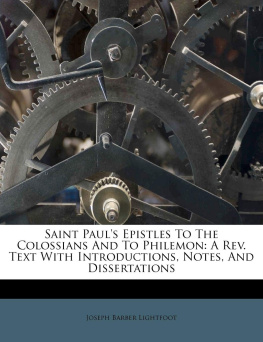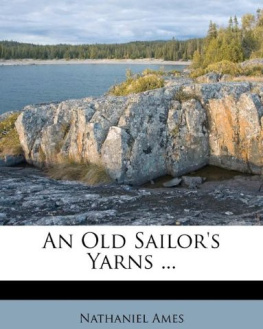The Narrow Land
by Jack Vance
A pair of nerves joined across the top of Ern's brain; he became conscious, aware of darkness and constriction. The sensation was uncomfortable. He tensed his members, thrust at the shell, meeting resistance in all directions except one. He kicked, butted and presently created a rupture. The constriction eased somewhat Ern squirmed around, clawed at the membrane, tore it back and was met by a sudden unpleasant exudation: the juices of a being not himself. It wrenched around, reached forth. Ern recoiled, struck back the probing members, which seemed ominously strong and massive.
There was a period of passivity. Each found the other hateful: they were of the same sort, yet different. Presently the two small creatures fought, with little near-inaudible squeaks and chitters.
Ern eventually strangled his opponent When he tried to detach himself, he found that an adhesion of tissue had occurred, that the two were now one. Ern expanded himself, rounded and fused with the defeated individual.
For a further period Ern rested, exploring his consciousness. The constriction once again became oppressive. Ern thrust and kicked, creating a new rupture, and the shell split wide.
Ern struggled forth into soft slime, then up into a glare of light, an acrid dry void. From above came a harsh cry. An enormous shape hurtled down. Ern dodged, evaded a pair of clicking black prongs. He napped, paddled, slid down into cool water, where he submerged himself.
Others inhabited the water; Ern saw their dim shapes to all sides. Some were like himself: pale pop-eyed sprats, narrow-skulled with wisps of film for crests. Others were larger, with the legs and arms definitely articulated, the crests stiffer, the skin tough and silver-gray. Ern bestirred himself, tested his arms and legs. He swam, carefully at first, then with competence. Hunger came; he ate: larvae, nodules on the roots of reeds, trifles of this and that
So Ern entered his childhood, and gradually became wise in the ways of the waterworld. Duration could not be measured; there was no basis for time: no alteration of light and darkness, no change except for Ern's own growth. The only notable events of the sea-shallows were tragedies. A water-baby frolicking too far, recklessly, offshore might be caught in a current and swept out under the storm-curtain. The armored birds from time to time carried away a very young baby basking at the surface. Most dreadful of all was the ogre who lived in one of the sea-sloughs: a brutish creature with long arms, a flat face and four bony ridges over the top of its skull. On one occasion Ern almost became its victim. Skulking under the roots of the swamp-reeds, the ogre lunged forth; Ern felt the swirl of water and darted away, the ogre's grasp so near that the claws scraped his leg. The ogre pursued, making idiotic sounds, then, jerking aside, seized one of Ern's playfellows, and settled to the bottom to munch upon its captive.
After Ern grew large enough to defy the predator birds, he spent much time on the surface, tasting the air and marveling at the largeness of the vistas, though he understood nothing of what he saw. The sky was a dull gray fog, somewhat brighter out over the sea, never changing except for an occasional wind-whipped cloud or a trail of rain. Close at hand was the swamp: sloughs, low-lying islands overgrown with pallid reeds, complicated black shrubs of the utmost fragility, a few spindly dendrons. Beyond hung a wall of black murk. On the seaward side the horizon was obscured by a lightning-shattered wall of cloud and rain. The wall of murk and the wall of storm ran parallel, delineating the borders of the region between.
The larger of the water-children tended to congregate at the surface. There were two sorts. The typical individual was slender and lithe, with a narrow bony skull, a single crest, protuberant eyes. His temperament was mercurial; he tended to undignified wrangling and sudden brisk fights which were over almost as soon as they started. The sex differences were definite: some were male, half as many were female.
In contrast, and much in the minority, were the twin-crested water-children. These were more massive, with broader skulls, less prominent eyes and a more sedate disposition. Their sexual differentiation was not obvious, and they regarded the antics of the single-crested children with disapproval.
Ern identified himself with this latter group though his crest development was not yet definite, and, if anything, he was even broader and more stocky than the others. Sexually he was slow in developing, but he seemed definitely masculine.
The oldest of the children, single- and double-crested alike, knew a few elements of speech, passed down the classes from a time and source unknown. In due course Ern learned the language, and thereafter idled away long periods discussing the events of the sea-shallows. The wall of storm with its incessant dazzle of lightning was continually fascinating, but the children gave most of their attention to the swamp and rising ground beyond, where, by virtue of tradition transmitted along with the language, they knew their destiny lay, among the "men."
Occasionally "men" would be seen probing the shore mud for flatfish, or moving among the reeds on mysterious errands. At such times the water-children, impelled by some unknown emotion, would instantly submerge themselves, all except the most daring of the single-crested who would float with only their eyes above water, to watch the men at their fascinating activities.
Each appearance of the men stimulated discussion among the water-children. The single-crested maintained that all would become men and walk the dry land, which they declared to be a condition of bliss. The double-crested, more skeptical, agreed that the children might go ashore-after all, this was the tradition-but what next? Tradition offered no information on this score, and the discussions remained speculative.
At long last Ern saw men close at hand. Searching the bottom for crustaceans, he heard a strong rhythmic splashing and, looking up, saw three large long figures: magnificent creatures! They swam with power and grace; even the ogre might avoid such as these! Ern followed at a discreet distance wondering if he dared approach and make himself known. It would be pleasant, he thought, to talk with these men, to learn about life on the shore... The men paused to inspect a school of playing children, pointing here and there, while the children halted their play to stare up in wonder. Now occurred a shocking incident. The largest of the double-crested water-children was Zim the Name-giver, a creature, by Ern's reckoning, old and wise. It was Zim's prerogative to ordain names for his fellows: Ern had received his name from Zim. It now chanced that Zim, unaware of the men, wandered into view. The men pointed, uttered sharp guttural cries and plunged below the surface. Zim, startled into immobility, hesitated an instant, then darted away. The men pursued, harrying him this way and that, apparently intent on his capture. Zim, wild with fear, swam far offshore, out over the gulf, where the current took him and carried him away, out toward the curtain of storm.
The men, exclaiming in anger, plunged landward in foaming strokes of arms and legs.
In fascinated curiosity Ern followed: up a large slough, finally to a beach of packed mud. The men waded ashore, strode off among the reeds. Ern drifted slowly forward, beset by a quivering conflict of impulses. How, he wondered, could beings so magnificent hound Zim the Name-giver to his doom? The land was close; the footprints of the men were plain on the mud of the beach; where did they lead? What wonderful new vistas lay beyond the line of reeds? Ern eased forward to the beach. He lowered his feet and tried to walk. His legs felt limp and flexible; only by dint of great concentration was he able to set one foot before the other. Deprived of the support of the water his body felt gross and clumsy. From the reeds came a screech of amazement. Ern's legs, suddenly capable, carried him in wobbling leaps down the beach. He plunged into the water, swam frantically back along the slough. Behind him came men, churning the water. Ern ducked aside, hid behind a clump of rotting reeds. The men continued down the slough, out over the shallows where they spent a fruitless period ranging back and forth.
Next page



